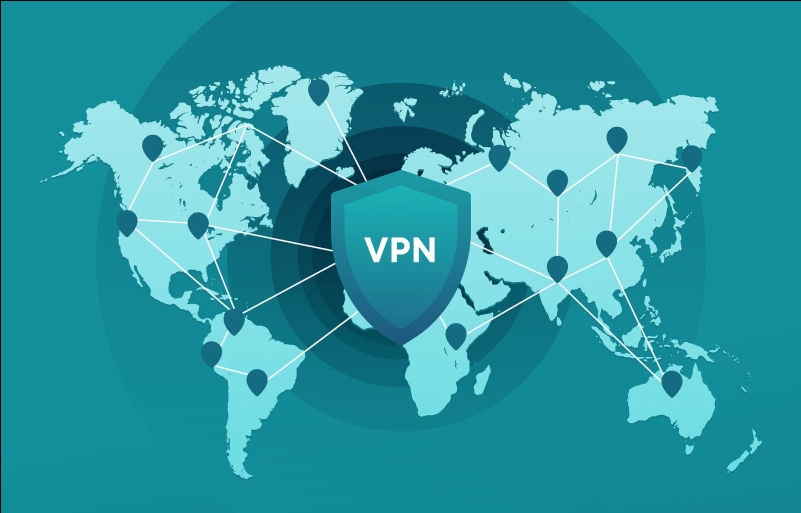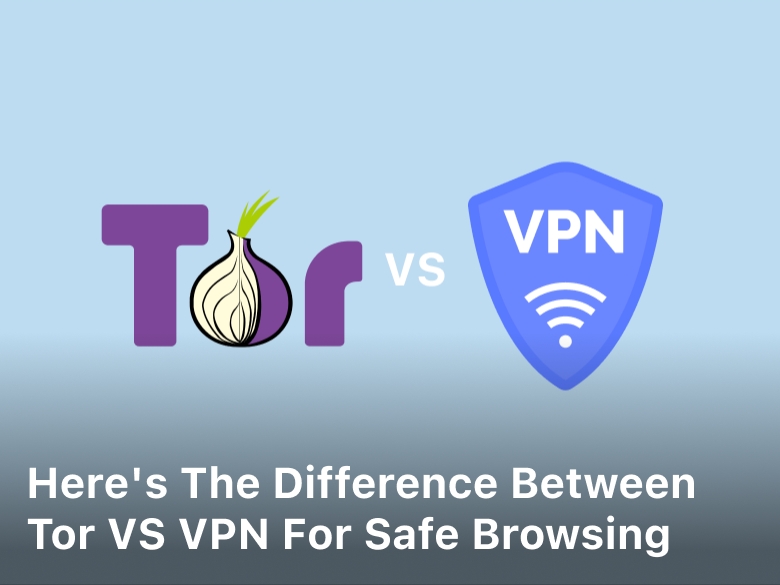Here’s The Difference Between Tor vs VPN for Safe Browsing
Here’s The Difference Between Tor vs VPN for Safe Browsing – Learn about the critical differences between Tor vs VPN for safe browsing. Understand how Tor vs VPN work, their benefits, limitations, and which one suits your online security needs better. Get expert insights and FAQs answered in this comprehensive guide.
In an increasingly digital world, safeguarding your online privacy and security is paramount. Tor vs VPN (Virtual Private Network) are two popular tools that offer enhanced protection while browsing the web.
However, they function differently, and understanding their nuances is essential to make an informed choice. In this article, we delve deep into the differences between Tor vs VPN for safe browsing, helping you determine which solution aligns better with your requirements.
Here’s The Difference Between Tor vs VPN for Safe Browsing
Tor vs VPN serve the common purpose of safeguarding your online activities, but they achieve this through distinct mechanisms:
Tor
Tor, short for “The Onion Router,” is a network of volunteer-operated servers that direct your internet traffic through a series of encrypted relays.
Each relay peels off a layer of encryption, hence the name “onion router.” This process makes it exceptionally difficult for anyone, including ISPs and government agencies, to trace your online actions back to you.
VPN
A VPN, on the other hand, creates an encrypted tunnel between your device and a remote server operated by the VPN provider.
All your online traffic passes through this tunnel, masking your IP address and encrypting the data, thus preventing hackers and eavesdroppers from intercepting your sensitive information.

Benefits of Using Tor for Safe Browsing
- Advanced Anonymity: Tor provides a higher level of anonymity due to its multi-layered encryption, making it an ideal choice for users in regions with strict internet censorship.
- Access to the Dark Web: Tor grants access to the Dark Web, a part of the internet not indexed by search engines, which can be valuable for researchers and journalists but should be navigated with caution.
- Volunteer-Driven Security: Tor’s reliance on volunteers running relay nodes contributes to its decentralized nature, reducing the risk of a single point of failure.
Limitations of Tor
- Slower Speeds: Due to the multi-layered routing, Tor tends to be slower than regular browsing, which might affect activities requiring high bandwidth, such as streaming.
- Exit Node Risks: The final relay in the Tor network, known as the “exit node,” can potentially capture unencrypted data, highlighting a security concern.
- Blocked Access: Some websites and services might block access from Tor exit nodes, limiting your browsing experience.
Benefits of Using VPN for Safe Browsing
- Enhanced Security on Public Networks: When connected to a VPN, your data is encrypted, making it safer to use public Wi-Fi networks where security risks are higher.
- Geo-spoofing: VPNs allow you to connect to servers in different locations, giving you access to region-locked content and enabling you to bypass geo-restrictions.
- Faster Speeds: While not always guaranteed, VPNs can sometimes provide faster speeds compared to Tor, making them suitable for streaming and downloading.
Limitations of VPN
- Trust in the Provider: When using a VPN, you entrust your data to the provider. It’s essential to choose a reputable VPN service with a strict no-logs policy to ensure your privacy.
- Single Point of Control: Since a VPN routes all your traffic through its servers, the provider has the potential to monitor your activities. Again, selecting a trustworthy provider is crucial.
- May Not Bypass All Restrictions: While a VPN can bypass many geo-restrictions, some advanced services can still detect and block VPN traffic.
FAQs
Is Tor illegal to use?
Tor is legal to use in most countries. It’s a tool designed to protect privacy, but like any technology, it can be used for both legal and illegal activities.
Can I use Tor vs VPN together for double security?
Yes, it’s possible to use Tor over a VPN or vice versa. However, this setup might not provide significantly enhanced security and can impact performance.
Do VPNs and Tor make me completely anonymous?
While they offer a higher level of anonymity, no tool can guarantee absolute anonymity. It’s important to adopt other safe browsing practices.
Are VPNs and Tor only for illegal activities?
Not at all. These tools are essential for protecting privacy, especially in regions with surveillance or censorship. They are used by individuals, journalists, activists, and businesses alike.
Can I be traced if I use Tor or a VPN?
While these tools make tracing more challenging, determined adversaries can still find ways to identify users. Proper usage and understanding of their limitations are key.
Which should I choose: Tor or VPN?
The choice depends on your priorities. If anonymity and bypassing censorship are crucial, Tor might be better. If security on public networks and geo-spoofing matter more, go for a VPN.
Conclusion
In the tug-of-war between Tor vs VPN for safe browsing, there’s no one-size-fits-all answer. Both tools offer valuable features, and your choice should align with your specific needs and priorities.
Tor emphasizes advanced anonymity and access to the Dark Web, while VPNs excel in providing security on public networks and bypassing geo-restrictions. By understanding their differences, you can take a step towards enhancing your online privacy and security.
Keep Reading :




